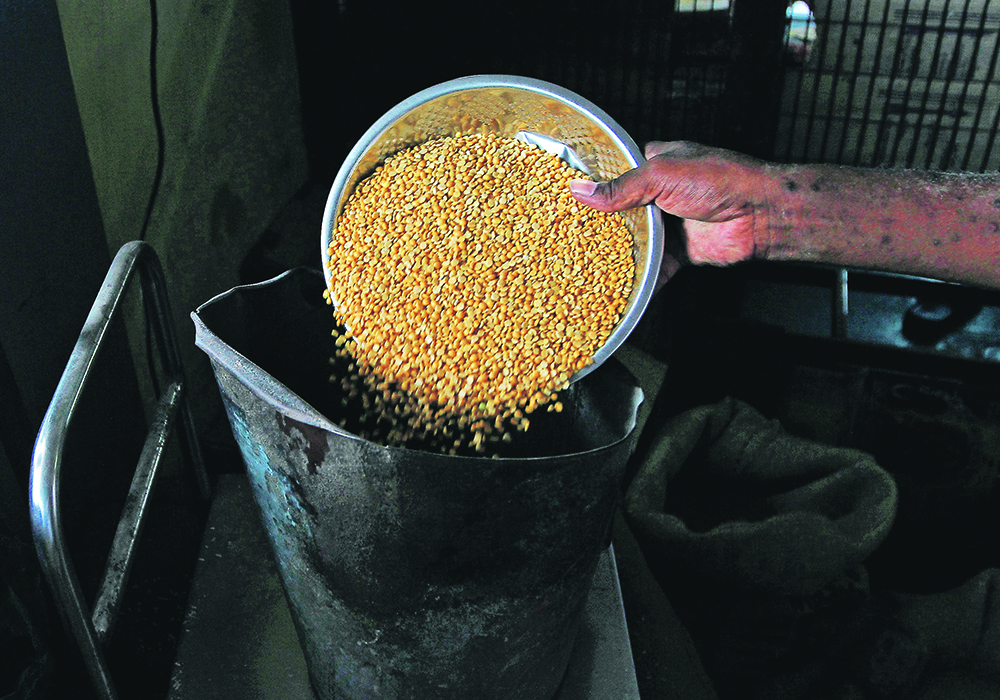Move is expected to increase sales to Asian country at the same time that shipping container restrictions threaten exports
Canada’s lentil exporters are experiencing a real 2020 moment.
India announced last week that it is extending its tariff reduction on imported lentils through the end of the week.
Around the same time, one of the world’s leading container shippers announced it is temporarily halting North American outbound movement of containers filled with agricultural commodities.
In September, India dropped its lentil tariff to 10 percent from 30 percent through Oct. 31, causing a huge spike in shipments from Canada.
On Oct. 28, India, Canada’s largest lentil customer extended the tariff reduction through Dec. 31, paving the way for sustained sales.
Read Also

Flax sector sees omega-3 opportunity
SASKATOON — A global shortage of omega-3 oils could be an opportunity for the flax sector, says an industry official….
However, companies involved in the pulse logistics chain say the reduced container supply will severely curtail Canadian pulse exports through the end of the year.
An estimated 30 percent of Canada’s pulses are shipped in containers and lentils account for the lion’s share of that business.
Brennan Turner, chief executive officer of FarmLead, agrees that this will be a “major headwind” for the lentil industry and could result in sharply increased transportation costs.
“Exporters are going to start to pay up for containers to make sure they have them available,” he said.
It is similar to what happens to basis levels for futures-traded crops like wheat and canola when faced with extra transportation costs.
“But for a crop like lentils there is no basis, so it’s going to hit the price directly,” said Turner.
That leads him to believe that the lentil bull run might be over.
“I would say there’s a pretty high chance that we’re probably at the highs of the market already and indeed if the freight costs get factored in there’s going to be lower prices,” said Turner.
He said the actions taken by Hapag-Lloyd and other shipping lines are “handcuffing” the pulse industry at a time when product had been flying out the door.
The Canadian Grain Commission reports that grain companies shipped 371,900 tonnes of lentils through the first three months of 2020-21, an 88 percent increase over the same time last year. That number does not include container shipments.
Turner is surprised that industry groups like Pulse Canada haven’t requested that the federal government intervene and prevent the exodus of empty containers out of Canada.
Greg Northey, vice-president of corporate affairs with Pulse Canada, said it is part of a broader conversation the agriculture industry needs to have with Ottawa.
“The container shortage is another example of a commercial decision made by our supply chain partners that further impacts the entire transportation system and hampers Canada’s ability to reach our export potential,” he said in an email.
“Pulse Canada renews its call for a serious conversation on the development of a national transportation strategy to ensure our trade gateways and infrastructure grow our exports, not hinder them.”
Northey said this latest transportation bottleneck is happening at an inopportune time for Canadian shippers.
“The lack of consistency and reliability in container supply does put at risk the opportunity for farmers and the pulse trade to capitalize on the high demand for pulses around the world, particularly India,” he said.
Northey said the two-month extension of India’s tariff reduction is not a game-changer for exporters because Canada’s logistics system can’t turn on a dime.
It takes weeks to adjust to new market dynamics, so while it may impact boats already on the water it likely has little effect on new business.
He said Canadian farmers and exporters need predictability rather than fluctuating trade policies.
















